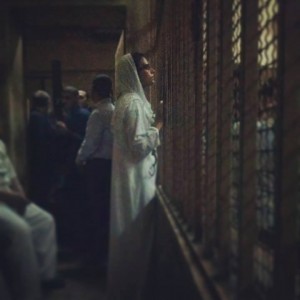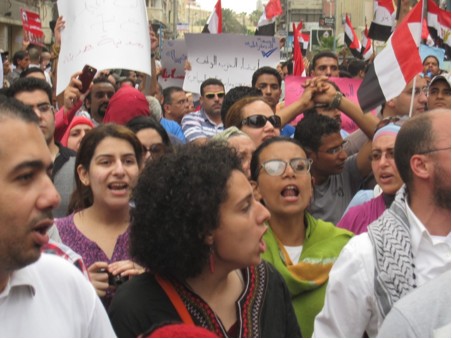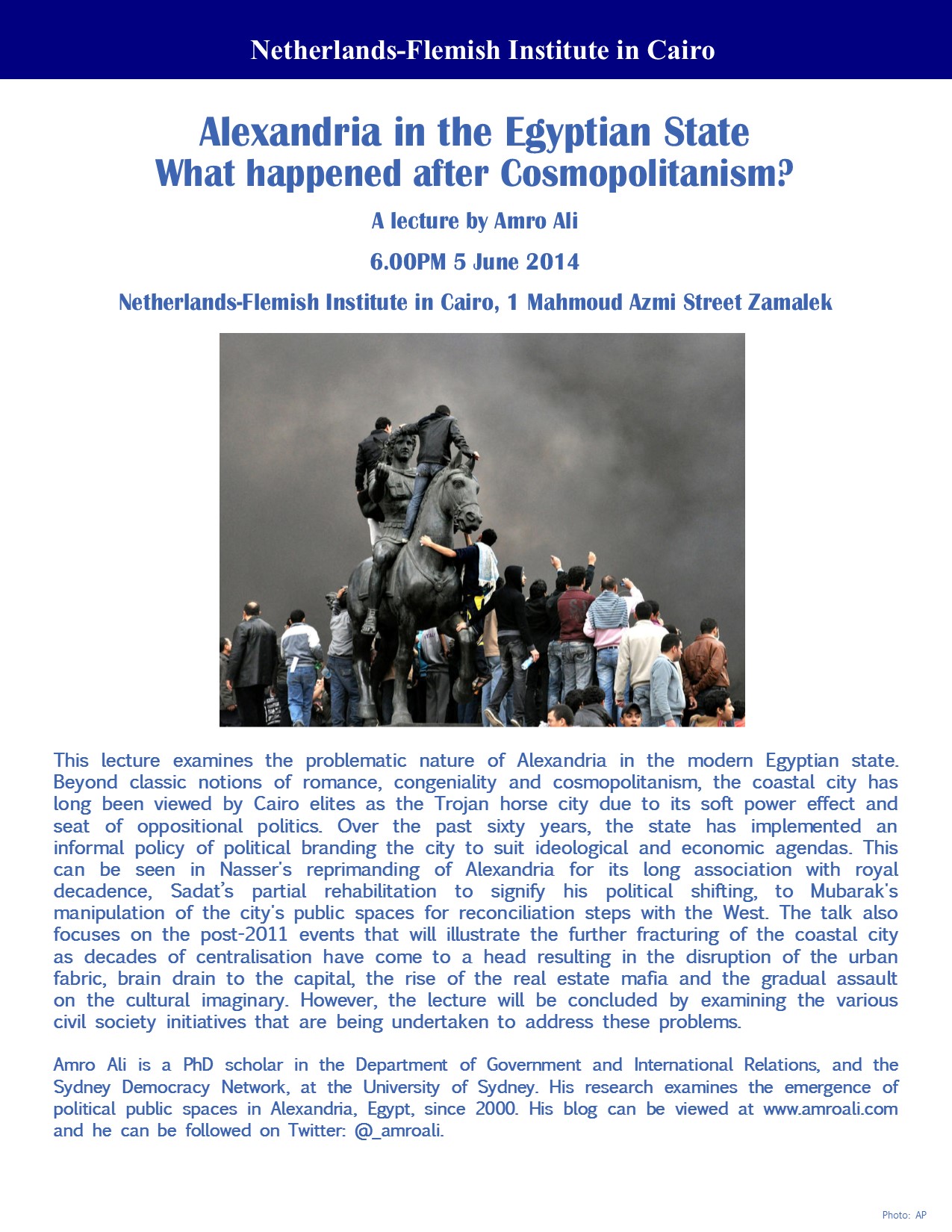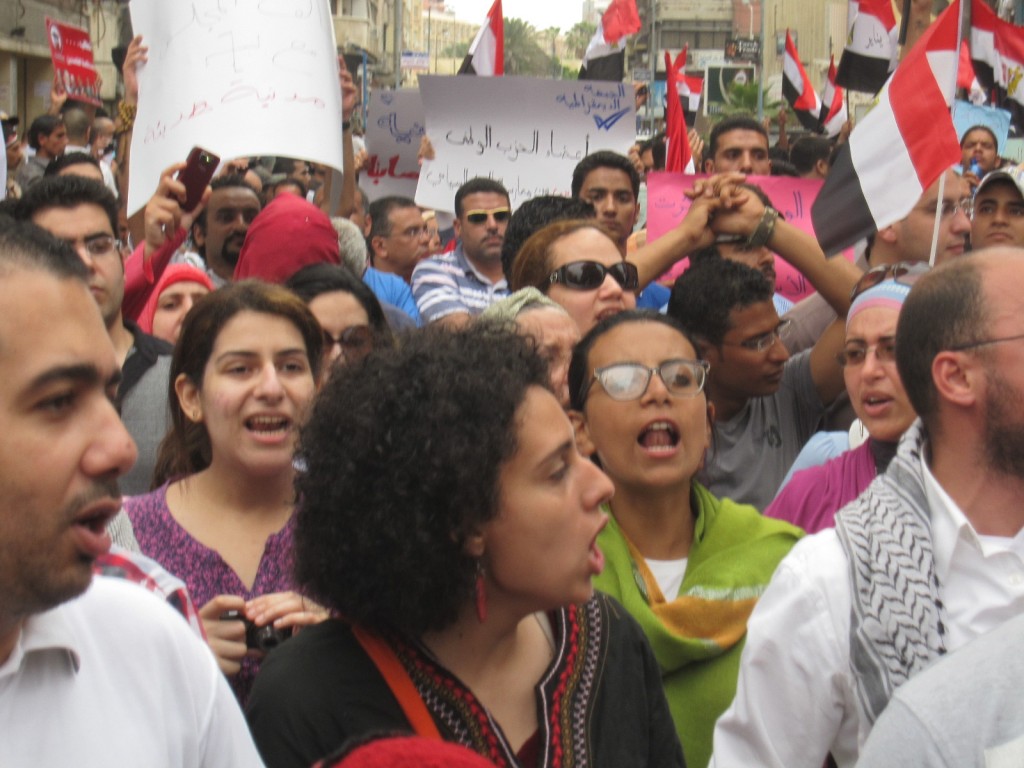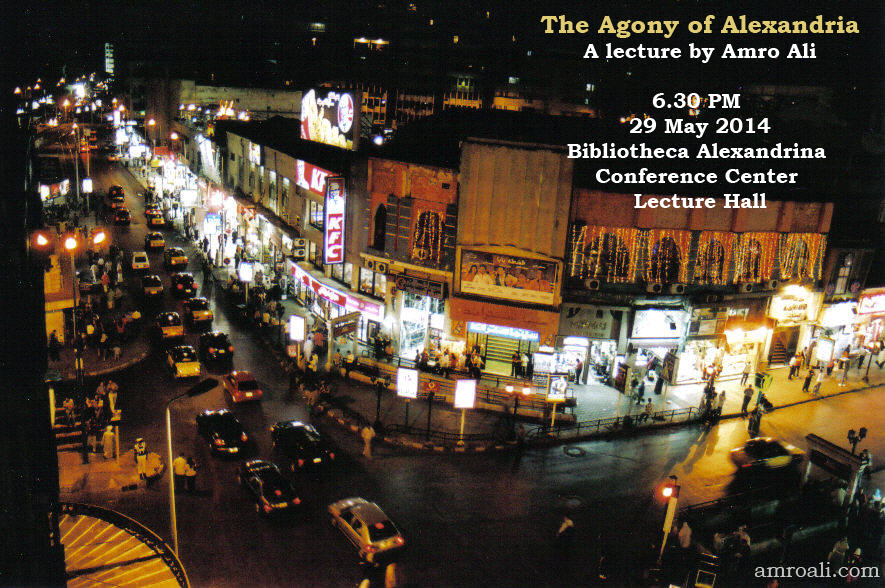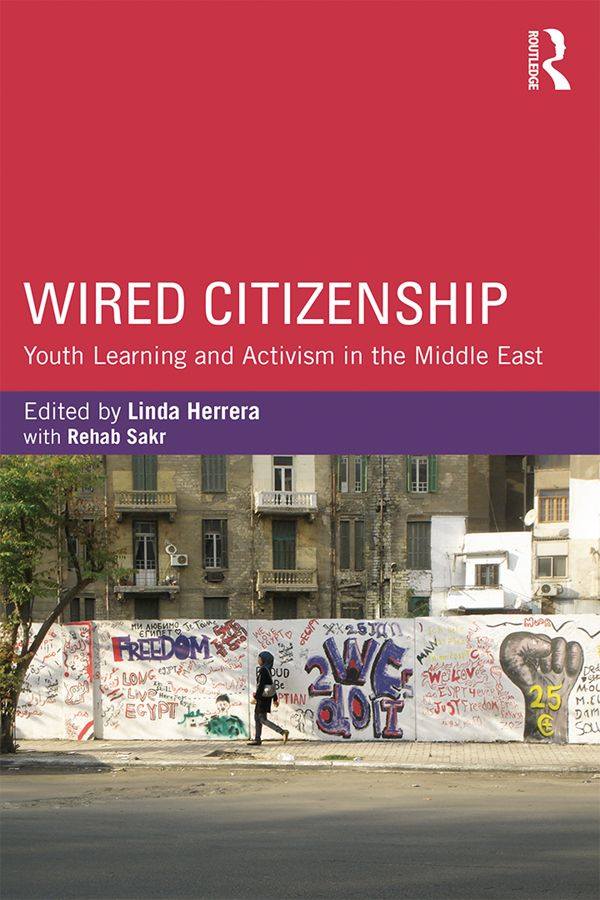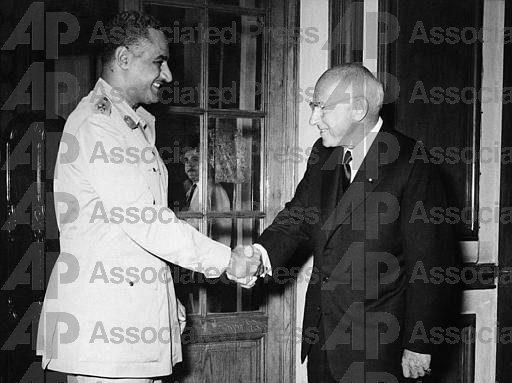
Originally published in the Tahrir Institute for Middle East Policy
“Inevitably, our opinions cover a bigger space, a longer reach of time, a greater number of things, than we can directly observe. They have, therefore, to be pieced together out of what others have reported and what we can imagine.” – Public intellectual Walter Lippman, 1922.
With emotions running high on the eve of the 1952 coup, one of Nasser’s colleagues panicked and was close to tears. Nasser said firmly: “Tonight there is no room for sentiment. We must be ready for the unexpected.” The colleague soon regained his composure and asked Nasser, “Why did you address me in English?” Nasser laughed and replied, “Because Arabic is hardly a suitable language in which to express the need for calm.”
Whether or not this is truly the case—and I am not convinced that it is—the Arabic language today is certainly living up to Nasser’s perceptions, as it is being used to intentionally bring about anything but calm. A schizophrenia increasingly pervades Egyptian colloquial speech, empowering people to express wildly irresponsible and impulsive views and actions and yet expect positive outcomes—sadly, one frequently encounters such behavior these days.
It is easy to see the extent to which media discourse has affected public conversation, even to the level of hearing a news anchor’s sentence be unconsciously mimicked word-for-word the next day by members of the public, such as, “Egypt is not ready for democracy and needs a strongman from the military to rule it” and “Why does Sisi even need a policy platform?” That is not to mention the media-inspired accusations and conspiracies that infiltrate next-day conversations. This might not be unusual in many parts of the world, but in Egypt, it can have severe or even fatal consequences—opinions are shaped and inflamed here by an inexhaustible imagination that can leap from suspecting every tourist of being a spy to nodding at (if not cheering for) a mass death sentence.
The road to the presidential election is now paved with fear and suspicion, harming society’s mental and economic well-being. The result is a climate that renders the vision for the country described in Sisi’s interviews, despite their melancholy and opaqueness, to appear as all that Egypt can hope for. The inevitable problem herein is that if it takes hysteria to bring a man to the presidency, it will take hysteria to continue to legitimize his presidency. A “platform” of security and stability cannot be maintained without consistently invoking the scarecrow of chaos.
This is an Egypt where an old lady feeds some birds, asks about my well-being, and in the same breath, tells me the massacre of over 600 people at Raba’a was necessary; an Egypt where a medical professional, trained to save lives, tells me that a death sentence for 683 people should be carried out, though he will feebly concede that it may be a “bit harsh.” My usual response to people with such opinions is for them to go personally tell the parents of the 683 (or other victims) why their children need to be executed. This usually causes something of a short-circuit in their imagination, but few actually change their minds on the matter.
At the core of such interactions lies an overlooked, foundational problem that can shed light on the nature of the public’s irrational and uncompromising stance towards anything that falls outside the state line. This problem involves the accumulation of individual anxieties stemming from experiences that are reported and imagined, rather than directly felt and observed. As a result, an uncontrollable, collective national resentment has evolved that extends, disturbingly, to the point of turning a blind eye towards, or actively whitewashing, unjustified deaths. This darkness spreads although—or perhaps because—few are actually encountering real life threats on any appreciable scale.
The train to Cairo
On trips to Cairo, I have come to find that interactions with the passengers I encounter on the Alexandria to Cairo train set the tone of my trip to the capital. Beside me most recently was an armed forces cadet and an Interior Ministry junior officer. As all the seats had already been sold, the three of us (and a few others) were forced to stand for the two-and-a-half hour trip.
The cadet abused his position to probe into my life, starting with the xenophobia-inspired question “Are you Syrian?” (I’m often mistaken for a Levantine because of my light complexion and altered Egyptian dialect from having lived abroad). He asked me why I was heading to Cairo, to which I replied that I was attending a funeral. He asked where in Cairo, and I replied Mohandessin. No answer could satisfy him. In fact, the stern way he first stated his occupation—“Armed Forces”—was a futile attempt to knock me off balance.
The Interior Ministry officer steered the conversation away from my destination, and we began talking about Australia. I was struck by the way that he casually spoke in a way that perfectly echoed statements mouthed off by state media. He asked me about my Ph.D. research and how Australia was different from Egypt. Then, he asked the predictable question: “What do they think of us?” I replied that they probably are not happy with Egypt at the moment, given that one of their citizens (journalist Peter Greste) is languishing in jail. I then turned the conversation to the use of torture by the Ministry. He tried to explain that torture was limited to specific cases, that it does not strike him as morally wrong, that it is not as a widespread as popularly thought, and that the global media exaggerates it—“We treat Brotherhood detainees with utmost respect.” On asking my religion (this questioning is second nature to Egypt), I was able to satisfy him that I am indeed a Muslim. Despite all the above, he then went onto explain how religion is not being applied correctly in the country.
Despite both of us being around the same age and engaging each other politely, the implicit feeling was that there was an invisible wall between us—a wall that was put there by historical and exclusionary hegemonic forces. In the end, we could only agree that Egypt is going through a generational struggle and that the young are disadvantaged throughout the county—I left with a feeling that I will cross paths with him again someday.
1984 in Tahrir Square
Standing outside the Hardees in Tahrir Square while waiting for a friend, I decided to take a number of photos to kill time. At a news stand, I saw George Orwell’s 1984 and snapped a photo of it, tweeting the words “a very timely piece of work.” In an ironic moment soon after, the police came by and, as a crowd of eight of them gathered, they pulled me in to their nearby, makeshift security office. They searched through the last photos on my phone and asked me countless questions. I explained the reasons behind each photo—that is a book cover I took an interest in; that was a road accident; that is graffiti; that is a panoramic shot of Tahrir. They grew alarmed at one photo of Muhammad Mahmoud Street where I had snapped a “creative” night shot through barbed wire. I somehow managed to reassure them that was just a harmless attempt at artistry.
Ultimately, the decision to let me go was not based on my words alone. After showing my Egyptian ID card and my University of Sydney card, the senior officer smiled and decided to let me go. The officer who pulled me, though, chose to take one last shot: “Are both of your parents Egyptian?” I answered: “Yes, my mother and father, may he rest in peace, are both Egyptian.” He looked at me sternly, handed back my cards, and responded, “May he rest in peace.” What most frightened me in this case was that somehow my heritage presumed my innocence, and doing a doctorate reassured them that I was “respectable.” What about others who are detained and who do not fit into this culture- and class-based security framework? The language of darkness has its subtexts.
The funeral of Bassem Sabry
The funeral I was attending in Mohandessin was that of Bassem Sabry. Having communicated with Bassem online but never having been able to meet him only further fuelled my anguish. The feeling was not unlike what I feel when thinking of the goals of the revolution that were always talked about and yet have remained elusive.
Beyond serving to mark the tragedy of losing a great human being, Bassem Sabry’s funeral was a surreal showcase of myriad key players involved in the darkness enveloping Egyptian politics now, fighting either for or against it or simply riding its wave—weary human rights workers, life-endangered journalists, veteran activists, opportunistic political figures, brown-nosing media personalities, despondent intellectuals. People who would normally be at each others’ throats were calmly gathered, though avoiding eye contact. It was like Sabry’s funeral invoked an uneasy truce for that one night as the Quranic recitations played on. At one stage, while seated next to TV comedian Bassem Youssef (who spoke in an ominous tone), I told him that he had little to worry about, as his fame gave him some sort of immunity. He replied: “You think two million Twitter followers can save me against a regime? A regime that arises to defend special interests will be more deadly than one that defends political interests.” He should know—he has been pushed onto the front lines against the insanity that has gripped the nation.
Sabry’s funeral was the funeral of part of the inheritance of the January 25 revolution as well—the language of hope. That night, the Cairo air was filled with the vibes of December 2010, yet unlike then, the political language of darkness has exposed a serious absence of empathy and forgiveness in the public discourse that endangers any aspirate for a positive outcome. It was as if empathy and forgiveness, Sabry’s defining characteristics, were two inheritances that had been lost.
Followers of the hyper-nationalist trend are just like those advancing religious fundamentalism, minus the beard. Both are showing themselves to be destructively intolerant—the former more so these days—and incapable of accommodating the rich and diverse tapestry of Egypt.
But is all hope lost?
As I came back to Alexandria, I decided to take a boat ride in the Mediterranean with friends to get away from all the madness—no Sisi posters out there on the water, thankfully—and to reflect on the past few weeks. The sailors who I encountered had this remarkable demeanor that made them seem detached from the political upheavals, and a glow of hope radiated from their faces. The simplicity and fortitude of the sailors made a mark on me. An explanation was soon coming.
I came back home to a friend who had shared a story of a distressed man who, in 1973, had sent a letter to author E.B. White saying that he had lost faith in humanity. The man received this response:
“As long as there is one upright man, as long as there is one compassionate woman, the contagion may spread and the scene is not desolate. Hope is the thing that is left to us in a bad time. I shall get up Sunday morning and wind the clock as a contribution to order and steadfastness. Sailors have an expression about the weather: they say the weather is a great bluffer. I guess the same is true of our human society—things can look dark, then a break shows in the clouds, and all is changed, sometimes rather suddenly. It is quite obvious that the human race has made a queer mess of life on this planet. But, as a people, we probably harbor seeds of goodness that have lain for a long time, waiting to sprout when the conditions are right. Man’s curiosity, his relentlessness, his inventiveness, his ingenuity have led him into deep trouble. We can only hope that these same traits will enable him to claw his way out.”
I can think of many remarkable human beings who fight tirelessly for social justice, some of whom I met for the first time at the funeral. They, like many others, are battling to establish the right conditions to affect, positively, the volatility of human nature. It is not that Arabic is hardly a suitable language in which to express the need for calm. It is that the true definitions of freedom, social justice, and democracy have yet to triumph over the state’s definitions of these terms. This state of affairs, however, cannot endure for long.
